Films that are produced but never released, even after years of production, are more common in the film industry than one might think. The reasons vary, ranging from financial troubles and legal disputes to creative disagreements and tragedies, with some being abandoned even in advanced stages of production due to changes in company leadership or the belief that the story would not appeal to audiences.
Some films have become urban legends or objects of curiosity for cinephiles and critics. Check out a few of them below!
10 Films That Were Never Officially Released
The Day the Clown Cried (1972)
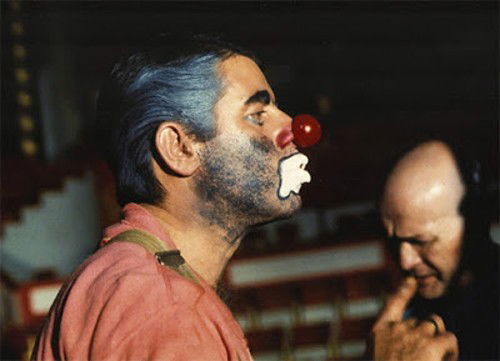
The film’s tone, which blends comedy with a subject as heavy as the Holocaust, received negative feedback from the few who saw it, including comedian Harry Shearer, who described it as “so drastically wrong.”
The production was plagued by financial problems, copyright disputes, and creative issues. Jerry Lewis did not have full rights to the script, which led to a legal battle.
Lewis expressed deep regret and shame over the film. In interviews, he even called it “bad, bad, bad” and said it had “lost the magic.” He consistently refused to allow its release, fearing both public reaction and the damage it could cause to his career.
Director
Jerry Lewis
Cast
Jerry Lewis (Helmut Doork), Harriet Andersson (Ada Doork), Anton Diffring (Colonel Bestler), Ulf Palme (Johann Keltner), Pierre Étaix (Gustav the Great), and Bo Brundin (Ludwig).
Synopsis
The story follows Helmut Doork (Jerry Lewis), a German circus clown who is arrested and sent to a concentration camp after making jokes about Adolf H.
In the camp, he is isolated from other political prisoners. His life changes when the officers force him to entertain Jewish children, using his tricks to lead them to the trains bound for the gas chambers. The film’s climax shows Helmut leading the children into a chamber, where he ultimately joins them, crying.
The Fantastic Four (1994)
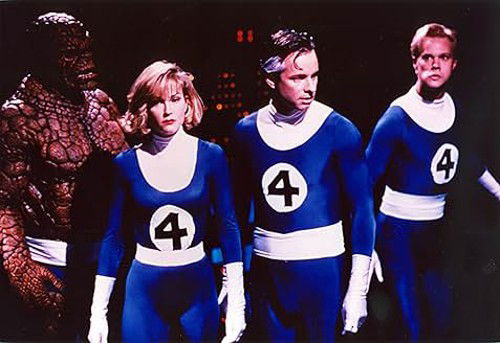
The film never had an official release; the main reason was to maintain the film rights to the characters. In the 1980s, German producer Bernd Eichinger of Constantin Film acquired the rights to the Fantastic Four.
The contract with Marvel stipulated that if the film was not produced by a certain date (end of 1992), the rights would revert to Marvel. The film now circulates widely in bootleg copies.
Director
Oley Sassone
Cast
Alex Hyde-White (Reed Richards), Rebecca Staab (Sue Storm), Jay Underwood (Johnny Storm), Carl Ciarfalio (in costume) and Michael Bailey Smith (voice) (Ben Grimm), and Joseph Culp (Doctor Doom).
Synopsis
Reed Richards and Victor Von Doom, college friends, attempt to harness the energy of the Colossus comet. The experiment fails, and Victor is presumed dead. Ten years later, Reed, Sue Storm, Johnny Storm, and Ben Grimm embark on a space mission. The Colossus comet reappears, but a protective diamond in the ship has been sabotaged by “The Jeweler,” exposing them to cosmic radiation. After a crash landing, they discover their new powers.
The Brave (1997)
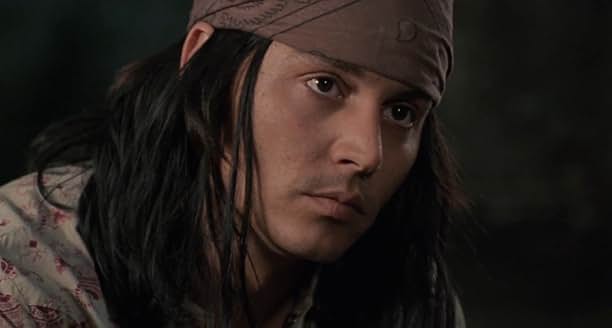
An independent drama with an intriguing story and notable production, marking Johnny Depp’s directorial debut. Based on Gregory McDonald’s 1991 novel.
Although screened at the 1997 Cannes Film Festival, where it was nominated for the Palme d’Or, the film received mostly negative reviews. Due to this reception, Johnny Depp was dissatisfied with the final cut and chose not to release the film in U.S. theaters. However, it was distributed and released on DVD in several other countries, including those in Europe and Japan.
Director
Johnny Depp
Cast
Johnny Depp (Raphael), Marlon Brando (McCarthy), and Elpidia Carrillo (Rita).
Synopsis
Raphael, an unemployed and penniless Native American, lives with his family in a trailer. To lift them out of poverty, he accepts McCarthy’s macabre offer: to be killed in a snuff film for $50,000. With only one week to live, Raphael bids farewell to his family and teaches his son how to be the new “man of the house” in a final act of love and sacrifice.
Don's Plum (2001)
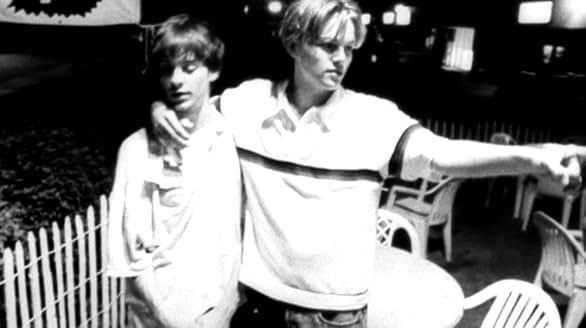
A black-and-white independent film that became notorious not for its content but for the controversy surrounding its ban. Filmed in the mid-1990s, the project was initially conceived as a short film. However, the director and producers decided to expand it into a feature-length film.
Filmed between 1995 and 1996, Leonardo DiCaprio and Tobey Maguire, already famous, tried to block the release of the film in the United States and Canada. The actors claimed they had agreed to participate in a short film, not a feature.
The producers countered, claiming the actors feared the film’s raw, improvised content would tarnish their public image. The legal dispute ended in a settlement: the film could be shown outside those two countries.
Director
R.D. Robb
Cast
Leonardo DiCaprio (Derek), Tobey Maguire (Ian), Kevin Connolly (Jeremy), Scott Bloom (Brad), Amber Benson (Amy), Jeremy Sisto (Bernard), Meadow Sisto (Juliet), and Ethan Suplee (Big Bum).
Synopsis
A group of young people gather to talk and eat at Don’s Plum café, with the plot unfolding through improvised conversations about their lives, insecurities, and desires. The conversation quickly becomes brutal and chaotic, exploring themes such as sex, violence, and friendship in a raw and direct way.
Hippie Hippie Shake (2010)
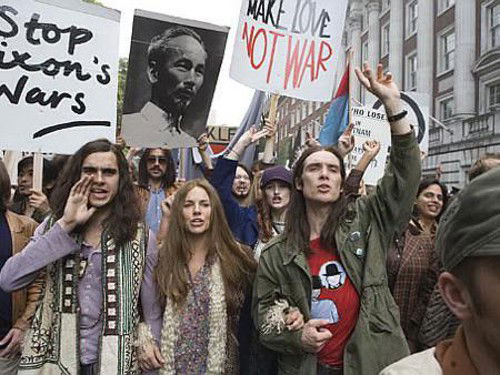
A British film that, despite being completed, never had an official release. The feature is based on Richard Neville’s memoir and portrays the 1960s counterculture in London.
The project was abandoned by director Beeban Kidron and screenwriter Lee Hall over “creative differences.” The film was shelved due to financial issues at Universal Pictures and fears of lawsuits, as some of the real-life figures depicted had questionable reputations.
Director
Beeban Kidron
Cast
Cillian Murphy (Richard Neville), Sienna Miller (Louise Ferrier), Max Minghella (Martin Sharp), Emma Booth (Germaine Greer), Chris O'Dowd (Felix Dennis), and Derek Jacobi (John Mortimer).
Synopsis
In the psychedelic 1960s, Richard Neville, an Australian editor, moves to London to launch the local edition of his underground satirical magazine, Oz. Alongside his girlfriend, Louise Ferrier, he immerses himself in the city’s hippie movement and art scene. The story culminates in an obscenity trial when Neville and his team are prosecuted for publishing a controversial edition of the magazine.
Dark Blood (2012)
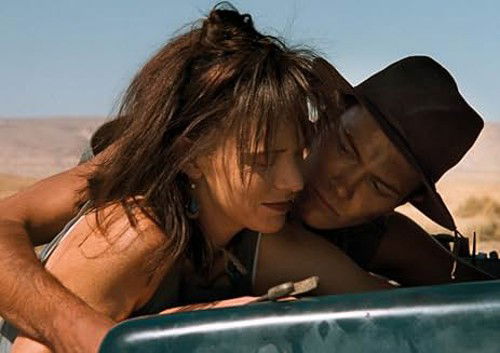
Filming for Dark Blood began in 1993 but was halted after the death of River Phoenix, at age 23, from a drug overdose. At the time, about 80% of the movie had already been shot. The project was abandoned, and the raw footage was stored away, becoming a Hollywood legend.
Years later, in 2011, director George Sluizer decided to revive the film. Already in poor health, he felt an urgency to complete the work. To finish the missing scenes, Sluizer used a creative solution: he added voice-over narration, reading the script lines himself to fill the film’s gaps.
After completion, it was shown at several film festivals in 2012 and 2013—19 years after River Phoenix’s death. The posthumous release served as a tribute to one of the most promising actors of his generation, giving audiences a final glimpse of his talent.
Director
George Sluizer
Cast
River Phoenix (Boy), Jonathan Pryce (Harry), Judy Davis (Buffy), and Karen Black (Motel Woman).
Synopsis
Boy, a young widower of Native American descent, lives in isolation in a cabin, awaiting the end of the world after his wife’s death from radiation poisoning. His solitary life changes when he rescues a Hollywood couple, Harry and Buffy, whose car breaks down during their second honeymoon—an attempt to save their marriage.
Boy takes them to his home, but tensions rise when he becomes obsessed with Buffy and begins holding them prisoner.
Empires of the Deep (2014)
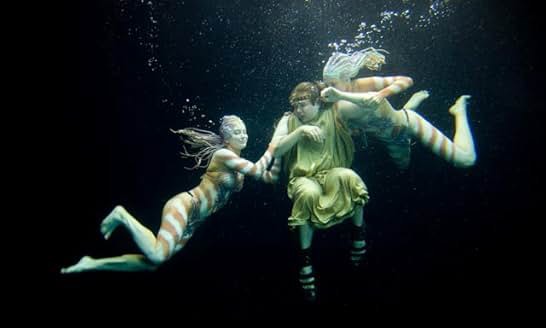
This Chinese-American epic fantasy production cost over $130 million but was never released. Known as the “Chinese Avatar,” it starred Olga Kurylenko and was conceived and written by tycoon Jon Jiang.
The production was chaotic, plagued by changes in directors, delays, and script problems. The trailer, released in 2012, drew negative criticism for its poor visual effects. The lack of a distributor and its commercial unviability ultimately shelved the project.
Director
Randall Frakes
Cast
Olga Kurylenko (Mermaid Queen), Steve Polites (Atlas), and Jonathan Kos-Read (Ocean King).
Synopsis
A young Greek hero named Atlas embarks on a journey to the mermaid kingdom to save his father. Along the way, he faces fierce sea monsters and becomes entangled in a grand battle between the mermaid realms and sea demons.
My Best Friend's Birthday (1987)
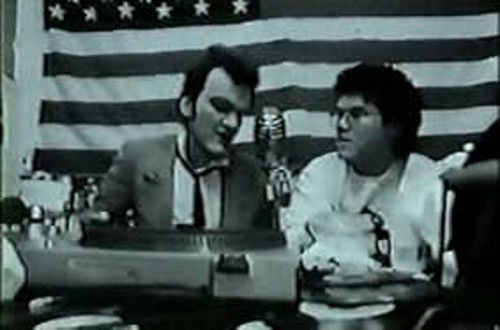
An amateur black-and-white comedy film that marked Quentin Tarantino’s directorial debut. Produced between 1984 and 1987, the film was never completed or commercially released.
Although a popular legend claims that a fire destroyed most of the footage, Tarantino himself revealed he was simply dissatisfied with the results. He only edited and preserved the 36 minutes he considered good.
Despite being unfinished, the surviving footage offers a glimpse into Tarantino’s early style, featuring fast-paced dialogue and quirky humor. Some ideas from the film were later reused in his screenplays, such as True Romance (1993).
Director
Quentin Tarantino
Cast
Quentin Tarantino (Clarence Pool), Craig Hamann (Mickey Burnett), Crystal Shaw (Misty), and Allen Garfield (Entertainment Mogul).
Synopsis
Mickey Burnett, a young man recently dumped by his girlfriend on the eve of his birthday, has his best friend, Clarence Pool, plan a surprise party for him. But the plans go comically and chaotically wrong.
Black Water Transit (2009)
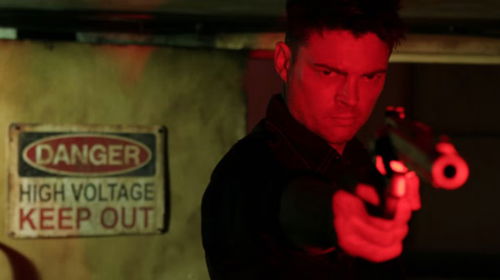
A crime drama that, though produced and completed, was never officially released commercially. Based on Carsten Stroud’s novel of the same name, it was directed by Tony Kaye, best known for American History X.
The production was mired in serious financial problems and legal disputes. The production company, Capitol Films, faced a lawsuit after the bankruptcy of its parent company, Grosvenor Park Media, in 2009. Producer David Bergstein, involved in the project, was later convicted of fraud, which completely halted the film’s distribution.
Director Tony Kaye had a turbulent relationship with the producers, even clashing with them publicly. The combination of financial troubles, legal battles, and the controversial reputations of some involved led to the film being permanently shelved.
Director
Tony Kaye
Cast
Laurence Fishburne (Jack Vermillion), Karl Urban (Earl Pike), Brittany Snow (Sardoonah), Aisha Tyler (Casey Spandau), Stephen Dorff (Nicky), and Beverly D'Angelo (Valerina Schick).
Synopsis
In post-Hurricane Katrina New Orleans, Jack Vermillion, a transport executive trying to keep his business honest amidst the chaos, is approached by federal agents to help expose arms smuggler Earl Pike, who is attempting to move his family’s illegal collection to a safe location.
Nothing Lasts Forever (1984)
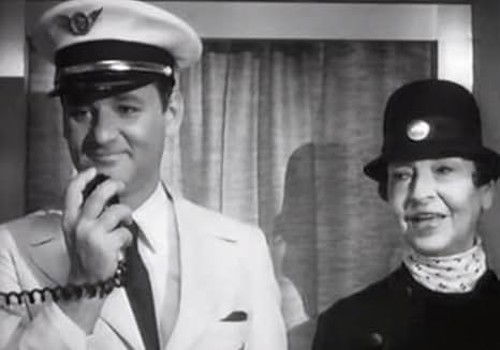
A science fiction comedy that never received an official theatrical or home media release in the United States. Directed by Tom Schiller, one of the original writers for Saturday Night Live, it starred Bill Murray and Dan Aykroyd.
MGM, which produced the film, was reportedly unsettled by the final product, which was very different from the conventional comedies of the time. Test screenings for executives and audiences were poorly received, and the studio labeled it an “art film.”
The decision to shoot almost the entire film in black and white (a rarity for a major studio production in 1984!) further undermined MGM’s confidence in its commercial potential. Though completed and even invited to the Cannes Film Festival, the studio shelved it indefinitely. It has only been shown at a few festivals and occasionally on cable TV, such as Turner Classic Movies.
Director
Tom Schiller
Cast
Zach Galligan (Adam Beckett), Bill Murray (Bus Driver), Dan Aykroyd (Buck Heller), Lauren Tom (Eloy), Sam Jaffe (Chief), and Mort Sahl (TV Host).
Synopsis
Adam Beckett, a young man who dreams of becoming an artist, returns to a futuristic, dystopian version of New York City, where the Port Authority has taken total control. After failing an artistic aptitude test, Adam is forced to work a menial job in the Holland Tunnel.
Conclusion
Films that never see release are a complex phenomenon in the movie industry, going beyond mere failures. These works reveal the many challenges and high risks of filmmaking, which can derail a project regardless of budget or star power.
They become Hollywood legends and serve as a reminder that the creative process is just as crucial as the final product, and that not every work of art ever conceived finds its way to the screen. Until next time!









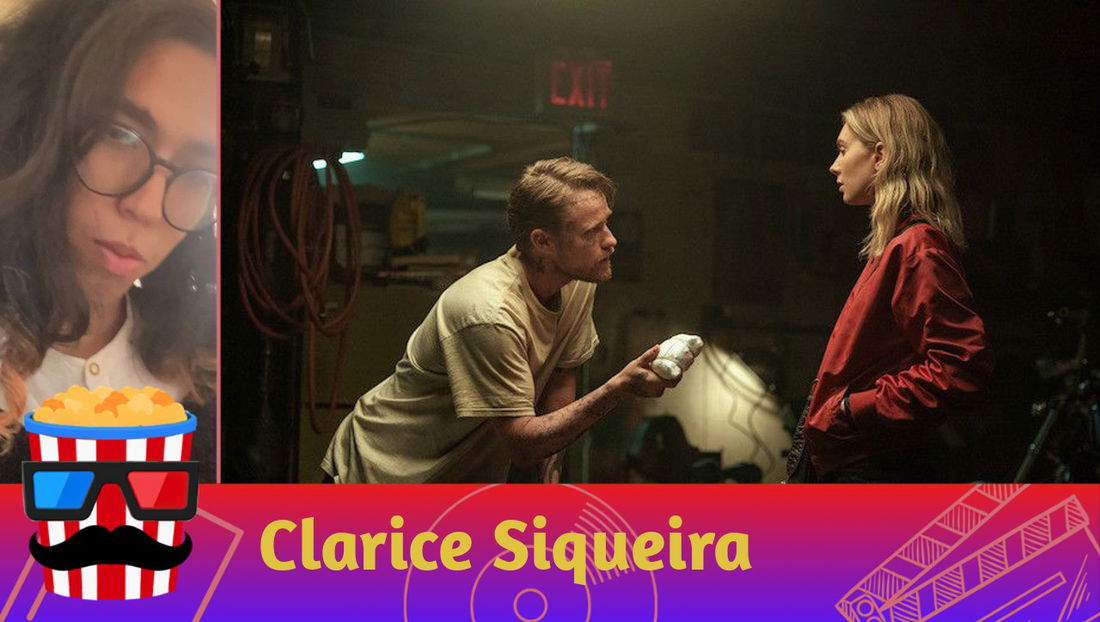



— Comments 0
, Reactions 1
Be the first to comment